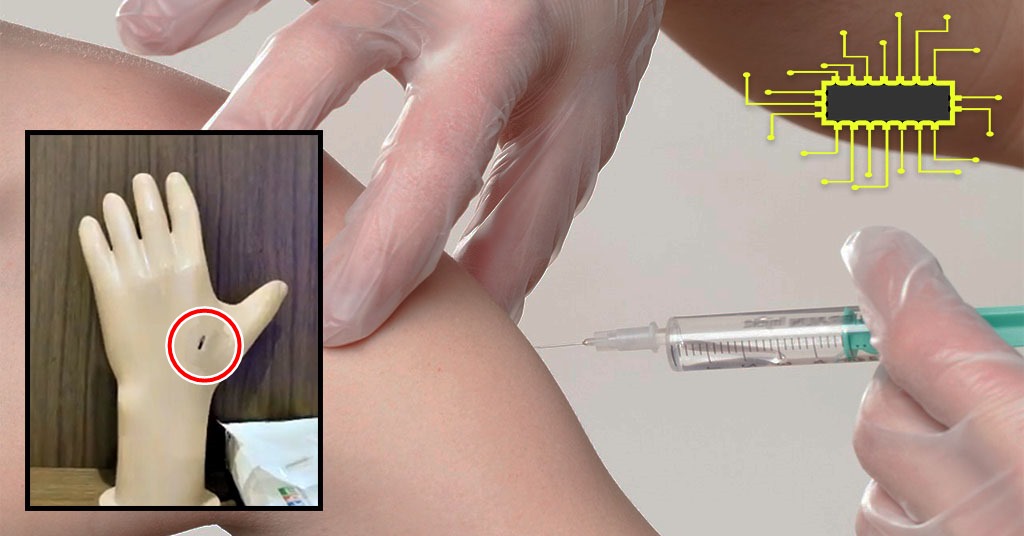Microchips implanted in humans to perform daily transactions such as shopping, going inside the metro train, and other digital interactions. This may probably be one of the major highlights during the recently concluded Gulf Information Technology Exhibition (GITEX) week. This event is the biggest and most popular technology exhibition in the Middle East which showcases next-generation technologies introduced by governments and international companies.
Etisalat has teamed up with Biohax International, a Biotechnology company in Stockholm, Sweden, to introduce the technology to the UAE and Middle East audience. The chip, which is the size of a rice grain, will be inserted under the skin between the index finger and the thumb. The chip will contain all kinds of data, including passwords, medical history, and other sensitive information.
Here’s a photo of BioHax International founder demonstrating the microchip technology.
Contents
Microchips the Size of a Rice Grain, Injected on Human Hands Introduced during GITEX Dubai
Jowan Österlund, CEO of Biohax presented the advanced payment demonstration of the biocompatible NFC implant in a unique showcase completing the intelligent shopping experience using the microchip implanted in the hand.
The biochip has a transmitter and antenna and works with NFC or near-field-communication technology that allows digital transactions. So you can imagine the possibilities of seamless digital interaction for everyday transactions. This makes us wonder if this is the next phase of human evolution?
View this post on Instagram
Here’s a Facebook video post from BioHax International showcasing the microchip to the Crown Prince of Dubai during their visit at GITEX Technology Week:
Video: Microchip Implant on Everyday Usage
Here’s a video demonstration taken from @bio.hax of the microchip implant on everyday use. As it stores sensitive information, you can sign in to your laptop device, make purchases, go inside trains, enter your office, etc.
View this post on Instagram
The microchip will act as your personal identification so you can sign in to your mobile device or computer, or perform any function similar to that of credit cards and other plastic cards.
What do you think about this technology? Will we be seeing many residents and expats implanting these microchips anytime soon?
